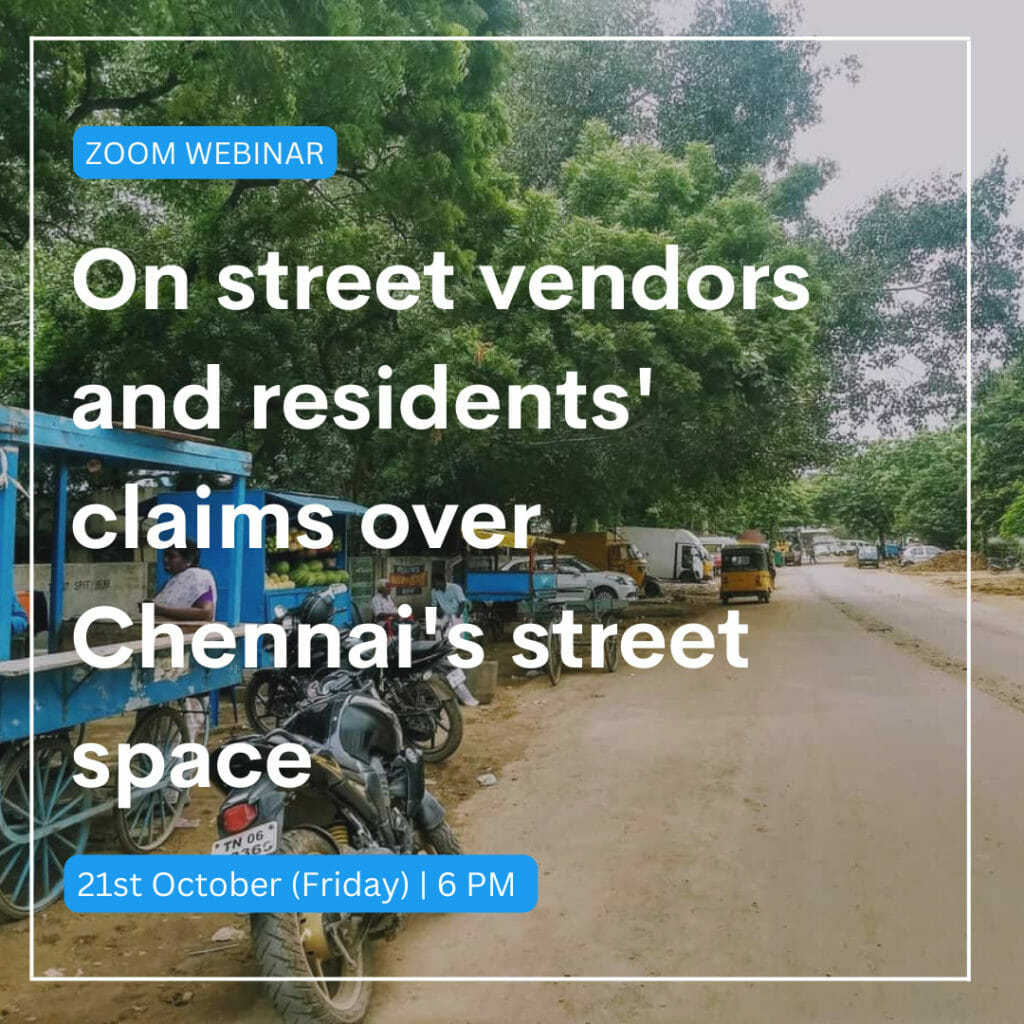Be it golu dolls in Mylapore, tasty street food in Sowcarpet or knick knacks in Pondy Bazaar, whatever your need, the street vendors of Chennai have got you covered.
However, the relationship between the city, its residents and street vendors has not always been harmonious.
On one hand, street vendors are wary of evictions and unhappy with the little protection they have in the eyes of the law.
Read more: Chennai Corporation plans polls for street vendor committees, but how fair will they be?
On the other, we have residents of various localities across the city who have over the years had many grievances against vendors, ranging from occupation of footpaths to littering and issues with noise.
Residents have complained of vending zones being established in residential areas. In the recent past, street vendors have faced evictions from various areas such as Koyambedu, Ambattur and Besant Nagar.
This Friday, October 21st, Citizen Matters will bring together a panel comprising representatives from both sides to share their concerns, grievances and examine possible solutions for the conflict that has been playing out in Chennai.
Some of the broader questions we would like to address are:
- How can the city balance the interests of the vendors and the residents?
- Is there a consultative process that determines vending areas in the city?
- What are the guarantees available to vendors under local laws?
- How can a mutually beneficial relationship be established across all quarters?
- What is the role of the civic body in creation of vending zones and mediation of conflicts?
Read more: Creating streets for walking: Can Chennai create more Pondy Bazaars?
Panel:
- Deepa Mani, Resident of Velachery.
Deepa worked for close to 20 yrs in IT as software professional, until 2017. Since then, she has been trying to create awareness on importance of responsible waste management given its adverse effects on environment and climate. With support from friends and RWAs she has been working within her apartment community.
- C Thiruvettai, Chennai Street Vendors Association
Thiruvettai is the President of Chennai Street Vendors Association. He has been actively highlighting issues faced by street vendors in the city and working for the protection of the rights of street vendors.
- Geeta Padmanabhan, Resident of Thiruvanmiyur
Geeta is an English teacher who also conducts various workshops. She has been active in social work. Along with her Association and Trust, she has also liaised with the government to build footpaths and keep them encroachment-free and planted 100 trees in the areas her RWA represents.
Along with the above individuals, the panel will also hear perspectives from various street vendors in the city on the issues faced by them.
Those interested can follow the link below to register for the webinar via Zoom. Registered participants will receive an email with the necessary information to log in to join the discussion.
Time: 6 pm – 7 pm
Date: 21 October, Friday
Register here
The webinar will be followed by a brief Q & A session open to participants.
A summary of the discussion will be shared on the website, Facebook and YouTube.
